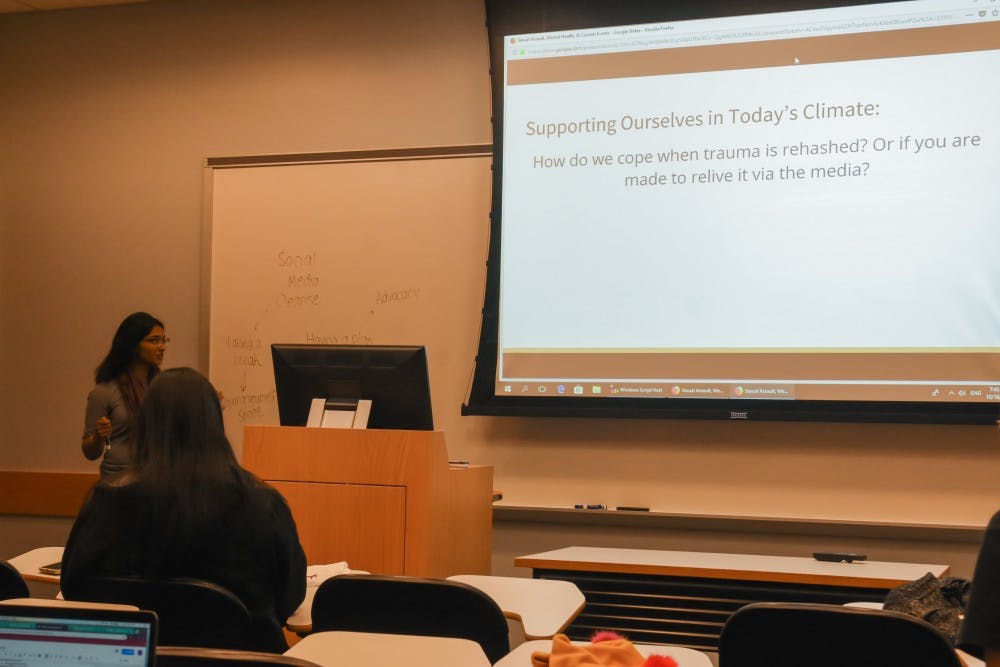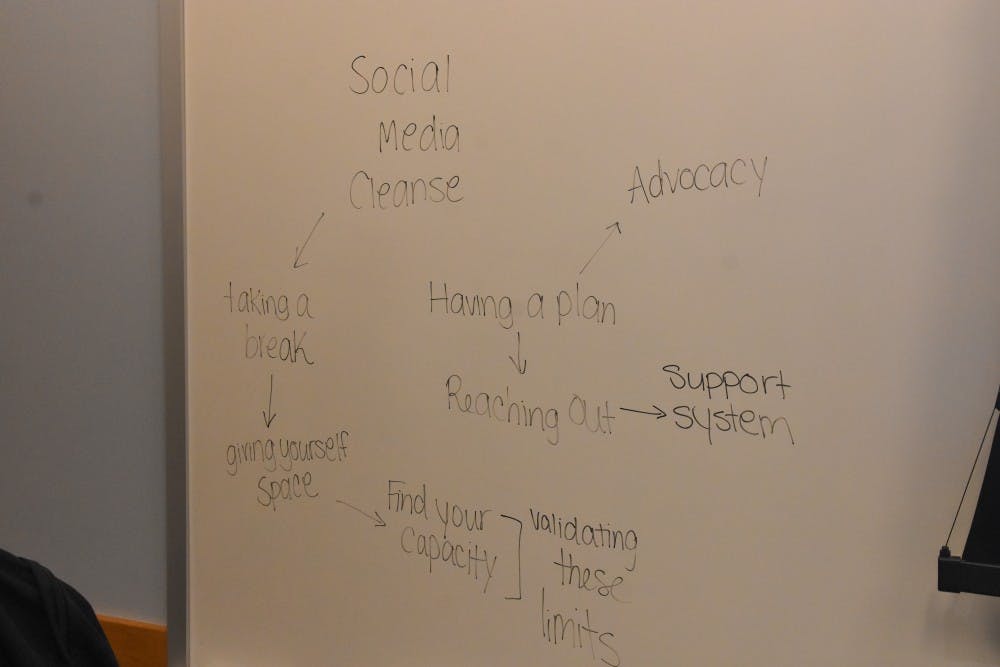
On Thursday, students convened to discuss how to stay mentally well amidst a storm of current events surrounding sexual assault.
Student organizations Active Minds Penn and Abuse and Sexual Assault Prevention hosted an event to talk about mental health in relation to the prevalence of sexual assault in media coverage recently, particularly news surrounding the Brett Kavanaugh hearings. The event also aimed to educate students on how they can help peers dealing with similar issues.
“Sometimes it seems like they are separate things but in reality health and trauma are very much related,” College junior Melissa Song and ASAP board member said.
Co-president of Active Minds and College senior Megha Nagaswami said that the event's goal was not only to be educational, but also to give students a chance to cope with difficult topics.
“One of the things we want to focus on is how people can cope and take care of themselves when trauma that people can often strongly relate to are consistently being rehashed in the media,” Nagaswami said.
Methods they suggested included taking a social media cleanse, participating in advocacy and marching, separating oneself from what is happening, taking a break from news, and practicing self-care while also helping others.
“I think it is important to talk about not just the chronic problem of mental health on campus, but like actually what are the flares, what is the day-to-day actual problem, where are they coming [from] and how can we solve them and how can we help," event attendee and Engineering junior Kathleen Givan said.
One way Active Minds demonstrated how to be an effective supporter of peers, family, and friends was through the Validate-Appreciate-Refer model, a process detailing how to effectively support and listen to whoever reaches out for help.
First, the listener should ensure that the person seeking support knows they are believed. Second, the listener should appreciate the courage of this person for speaking up and confiding. Third, the listener should refer them to resources, but not push resources onto them.
“I think that active listening training has made a big difference in how I interact with the world and how I process my own feelings," Givan said. "I really recommend that people reach out and learn how to talk about [mental health] and destigmatize it."

Those who came to the event said the discussion with their peers on how to cope with current news proved useful.
“I always really like connecting with peers who are concerned about similar topics that I am and are passionate about helping the community at Penn and just making sure everyone's well being is better than it was before,” said Anna Hardie, College sophomore and ASAP board member.
ASAP was created to give students a place to talk about issues surrounding sexual violence. Each year it organizes Penn’s participation in Take Back the Night, an international event focused on ending sexual violence, but the club is currently undergoing changes.
“ASAP as a group … is really changing its mission to fit the needs of the people and that we are definitely open to hearing suggestions that people might have for what they want to see from us,” Song said.
Active Minds Penn is a mental health awareness and advocacy organization that hosts various events each semester and collaborates with the administration on mental health related policies.
The group holds general board meetings twice a month, where members discuss different issues surrounding mental health.
“I think it's really important to create an environment where students can come if they're comfortable sharing their opinions,” said Nagaswami. “Sometimes people come and don't say anything but just know that a safe space is available for them.”
The Daily Pennsylvanian is an independent, student-run newspaper. Please consider making a donation to support the coverage that shapes the University. Your generosity ensures a future of strong journalism at Penn.
Donate




